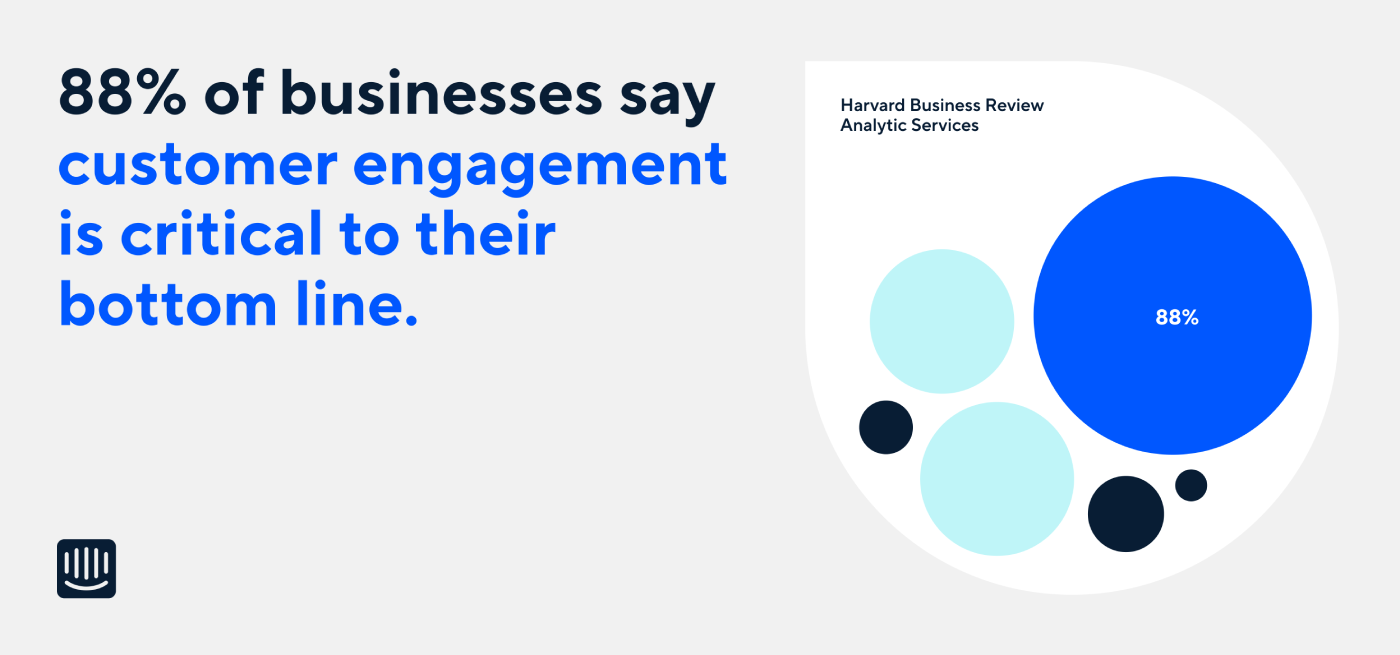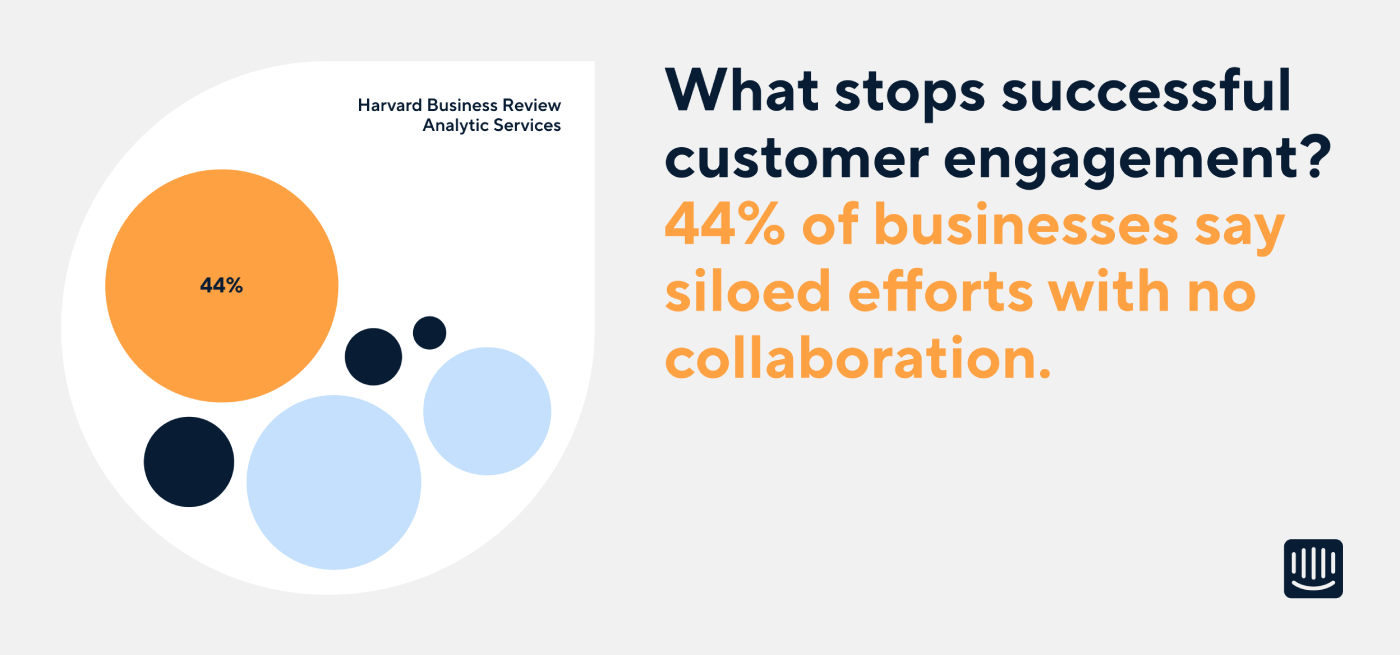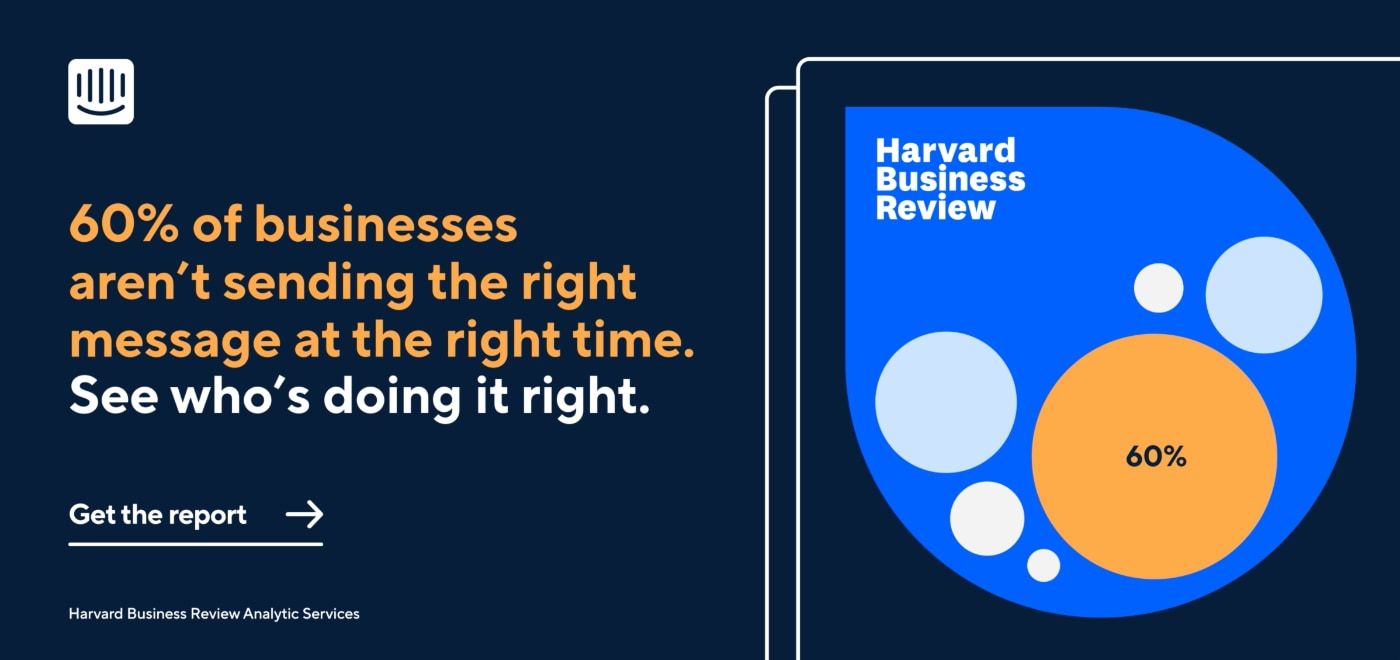
Effective customer engagement is business critical – insights from Harvard Business Review Analytic Services
Creating quality customer experiences has always been important for retaining customers. Now, during this time of economic uncertainty and against a competitive landscape, effective customer engagement is business critical.
New research from Harvard Business Review Analytic Services reveals that businesses of all sizes – from small businesses to enterprises – are realizing the business value of personal, efficient customer engagement. And many are striving to provide just that.
But they’re facing big barriers. In the newly released report, sponsored by Intercom, executives say that disconnected, legacy tech stacks and siloed data are slowing their teams down and preventing personalization. In addition, many don’t have the strategies, talent, and culture needed to succeed. Here are a few of the report’s most eye-opening insights:
- Customer engagement is a critical value driver: 88% of executives agree that customer engagement has a significant impact on their organization’s bottom line.
- Poor cross-functional collaboration impedes success: 44% of executives say a lack of collaboration and siloed efforts are the top impediments to successful customer engagement.
- Siloed data prevents progress: 32% of executives say they fail to properly distribute data-driven customer insights throughout the organization.
- There’s a scarcity of talent: Over half (56%) of executives encounter difficulty finding the right personnel to manage customer engagement efforts.
Below, we take a deeper dive into the report’s key data and trends.
Discover the top trends transforming customer engagement
Intercom sponsored Harvard Business Review Analytic Services to conduct a survey of 317 business leaders across a range of industries, including manufacturing, healthcare, technology, financial services, and more. The report Future-Proofing Businesses with Modern Customer Engagement reveals the top trends emerging in the customer engagement landscape in 2022 and beyond.
Customer engagement is defined as communicating with your customers over the course of their journey – from acquiring, onboarding, and nurturing to supporting and retaining – to help them get to the outcome they want.
1. Effective customer engagement holds the key to customer retention and loyalty
In the digital age, modern customers want and demand easy, proactive, personal and efficient experiences at scale. Organizations who deliver on customer expectations can expect big business results. In fact, 88% of executives agree that customer engagement has a significant impact on their organization’s bottom line.

You may be wondering, “where do the biggest opportunities lie?” One of the top benefits of creating engaging, personalized customer experiences is increased customer loyalty and retention, according to 69% of survey respondents. What’s more, 40% of respondents rely on retention/repeat purchase rates to measure or track the success of customer engagement efforts.
Takeaway: As Intercom’s CEO Karen Peacock says: “Now is the time to double down on creating an exceptional customer experience – one that’s personalized, contextual, and engaging across the customer journey and doing it in a highly efficient way that saves you money.” When all businesses have to fight harder to win customer loyalty, personal and efficient customer engagement can be your key competitive advantage.
2. Businesses strive for greater cross-functional collaboration
When departments fail to share information, pool resources, and share contextual data and insights, it’s often the customer who pays the price with a lackluster customer experience. And ultimately, it’s the business who will swallow the cost of lost customers and revenue. But getting alignment is easier said than done – 44% of executives say a lack of collaboration and siloed efforts are the top impediments to successful customer engagement.
“56% of survey respondents are encouraging greater cross-functional team collaboration with the explicit aim of improving customer engagement”
In the digital age, as the lines between sales, marketing, product, and support blur, sharing information across departments becomes increasingly critical to customer engagement success across the customer journey. It’s no wonder that over half (56%) of survey respondents are encouraging greater cross-functional team collaboration over the next 18 months with the explicit aim of improving customer engagement.
Takeaway: Functional departments, such as customer service, sales, and marketing, should work together to provide customers with a world-class, cohesive, personalized experience across the customer journey. Organizations need to ensure that any investments in technology and cross-collaboration center around a culture that values customer engagement.
3. Businesses lack the connected tools needed to provide personal, in-context communications
Tech stacks bloated with legacy systems and disjointed tools are slow, inefficient, and lack contextual data needed for personalization. Ultimately, outdated tools impede collaboration and prevent employees from engaging customers in a timely and personalized way. 32% of respondents say their organizations are failing to properly distribute data-driven customer insights throughout the organization. And 60% of executives don’t feel their organization is tailoring their communications well with their current tools.

With all of these pain points and lost opportunities, it’s no surprise that nearly half (48%) of respondents say they are investing in new or improved customer engagement technologies – such as customer relationship management (CRM), artificial intelligence and machine learning, and data analytics in the next 18 months.
Takeaway: Equipping your teams with the right connected tools that fuel personalization across the customer journey will become even more important for the year ahead as many businesses try to retain more customers with fewer resources.
4. There’s a scarcity of customer engagement talent
Modern customer engagement is a newer discipline than more established, traditional functions like HR, finance, or IT. It’s not surprising then that one of the key challenges companies are facing is finding suitable talent to fill critical roles – from leadership all the way to execution. Over half (56%) of respondents encounter difficulty finding the right personnel to manage customer engagement efforts.
“There is little consensus about who is primarily responsible for customer engagement”
There is also little consensus about who is primarily responsible for customer engagement, but cross-functional teams (cited by 16% of respondents) and C-level executives (cited by 16% of respondents) narrowly share the top spot for taking charge.
Takeaway: As keynote speaker on customer engagement and author Blake Morgan puts it, “The most successful customer engagement strategies start with buy-in from top executives, especially the CEO. C-level leaders set the tone for the entire company and showcase the importance of building strong customer relationships.” Morgan goes on to say, “From there, the actual strategy should be designed by the head of customer experience or marketing – ideally, a chief customer officer or chief experience officer.”
Stay ahead of the customer engagement curve in 2022: Get the full report
These trends are just the tip of the customer engagement landscape iceberg. Download the full report to get more insights on the current state of customer engagement and future-proof strategies to unlock consistent growth and efficiencies, regardless of the economic outlook.







